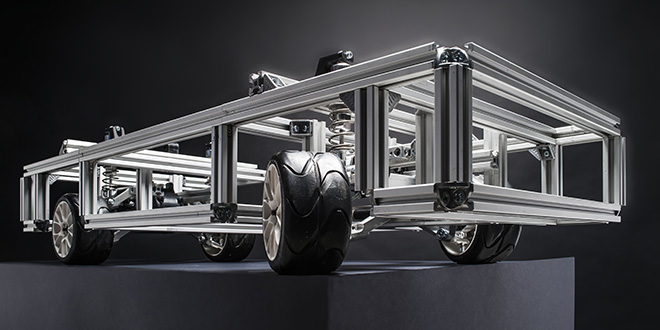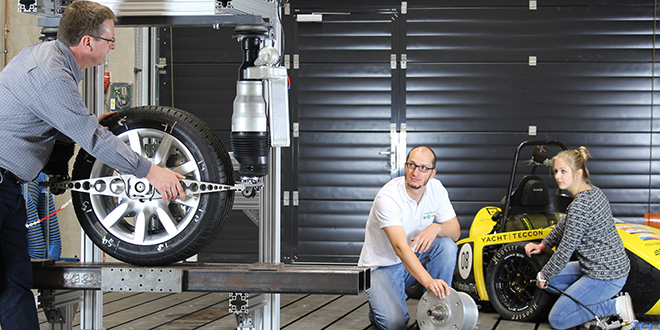Modern automobiles are complex beasts, with numerous subsidiary systems that consume energy. In an EV, more energy consumption means reduced range, so it can be well worthwhile to study more efficient ways to power the various accessories.
One of these accessory systems is assisted steering, which reduces the physical effort required for the driver to steer the car. In an EV, the energy for assisted steering comes from the battery, potentially reducing range. Germany’s Karlsruhe Institute for Technology (KIT) and automotive supplier Schaeffler are collaborating on a project called e²-Lenk, which aims to develop a system that assists steering in an energy-efficient way by intelligently controlling the drive torques transmitted to the individual wheels.

“The new assisted steering system would require less system components in an electric vehicle. This would mean savings in terms of weight and energy,” explain project managers Dr. Marcel Mayer of Schaeffler, and Dr. Michael Frey of KIT. “This would mean that an electric car would be cheaper and have a greater range.”
The idea is that the wheels of an EV will be driven by individual electric motors. If the wheels on the left side transmit more drive torque to the road than those on the right side, this will result in acceleration of the vehicle to the right without the need to turn the front wheels or consume additional energy for steering. Tracked vehicles and quadrocopters steer using the same principle. “Steering assistance can be provided while driving by means of an intelligent control system and suitable wheel suspension,” says Dr. Mayer. “Only steering when stationary remains a challenge with conventional designs.”
“The assisted steering system is part of the drivetrain with our approach,” explains Frey. Steering the front wheels is carried out without using additional energy. “We also want to significantly increase the quality of driving. Customer benefit, comfort, safety and reliability go hand in hand here.”
The partners are building functional demonstrators which will be used to validate and optimize the concepts.


















































